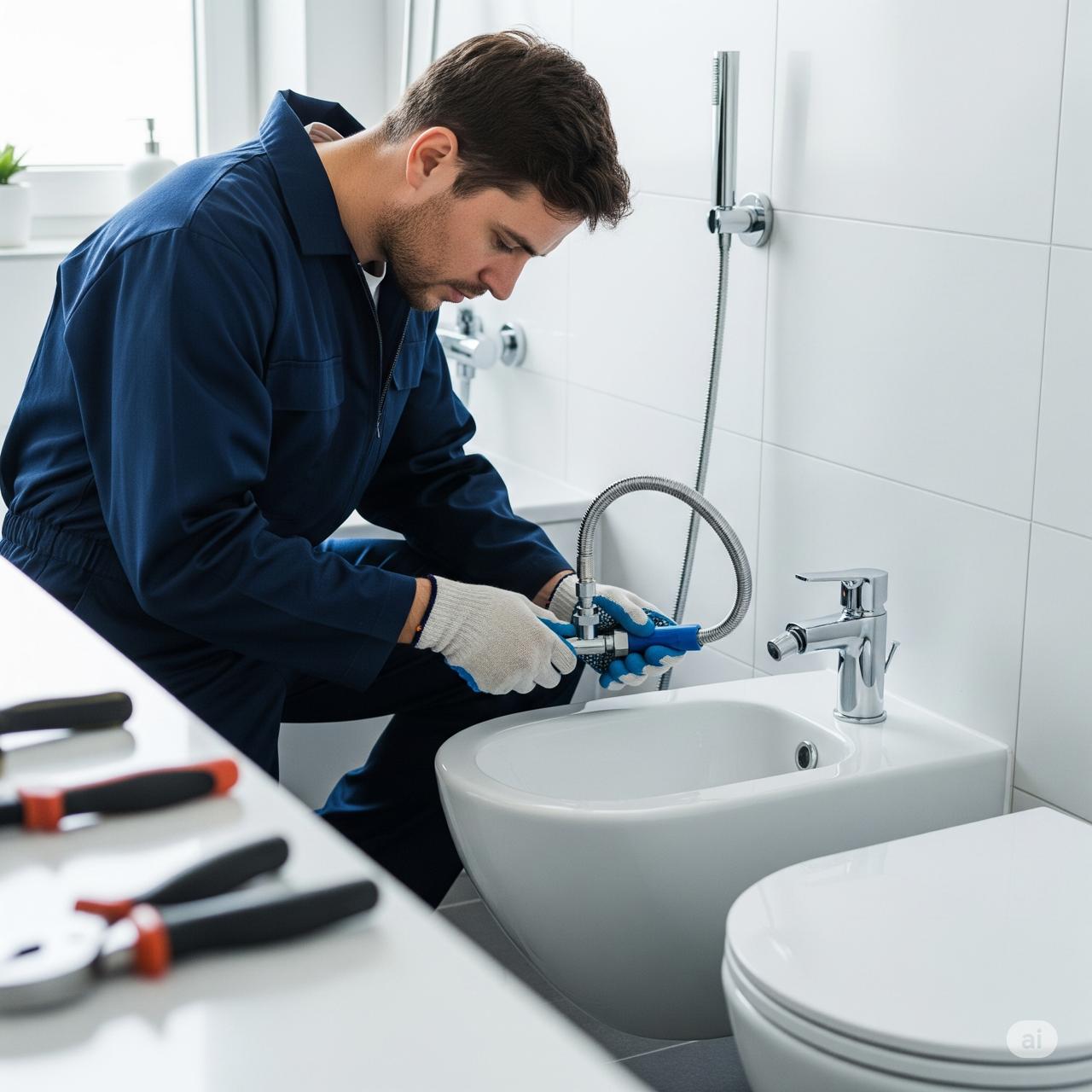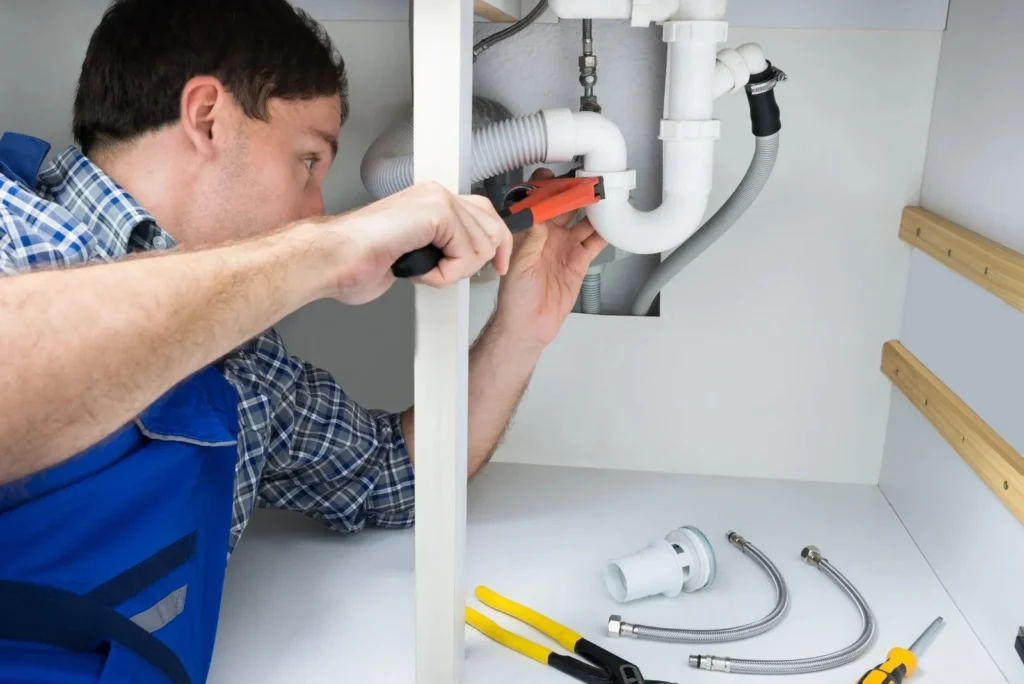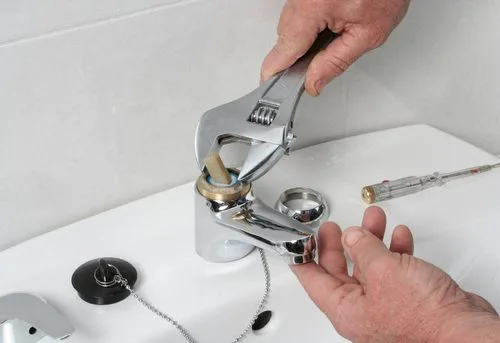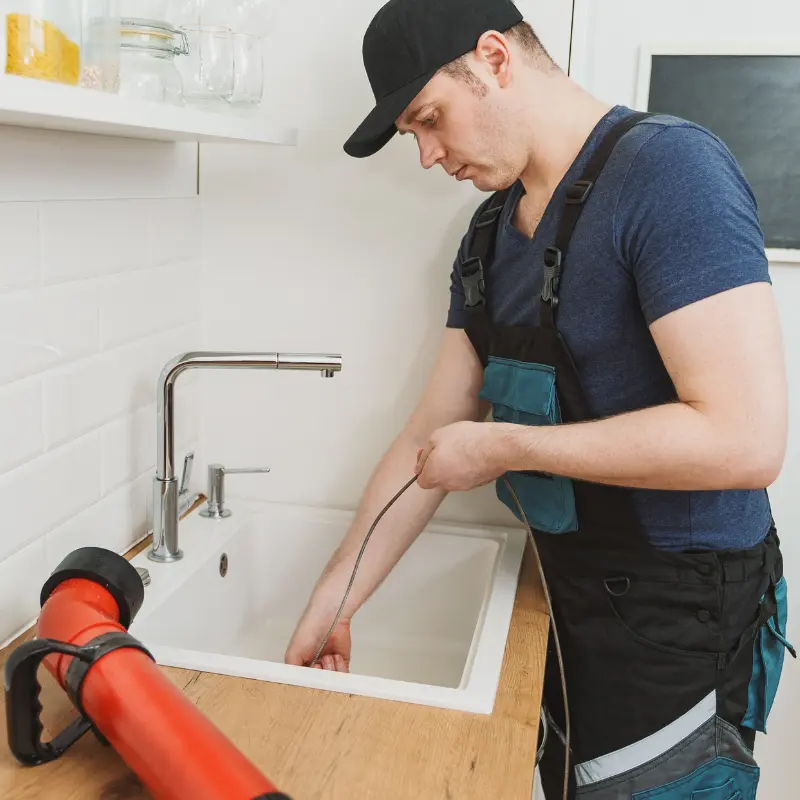

Mrs. Eleanor Thompson had lived in the same cozy bungalow for nearly 40 years. At 76, she still did her own gardening, made the best lemon bars on the block, cursed the rise in property taxes, and crushed her daily crossword puzzles. But when it came to newfangled gadgets, she had her limits.
One afternoon, while flipping through a senior living magazine, she read about the “health and hygiene benefits of bidets.” Intrigued, she searched online and found a highly rated aftermarket seat promising tool-free bidet installation in “15 minutes or less.”
That sounds like something I could do, she thought as she clicked Buy Now. A few days later, the box arrived. It didn’t look intimidating until she opened it. Inside was a maze of hoses, connectors, washers, and a very detailed instruction manual with eye-straining font. She studied the diagrams, glanced at the water shutoff valve under her toilet, then at the wrench set in her hall closet. And finally, she did what many smart homeowners do. She picked up the phone and called Fast Plumbing and Drain a trusted plumber for bidet installation.
The plumber arrived the next morning. Young, polite, and clearly experienced, he gave Eleanor a kind smile when he saw the unopened kit. “These say ‘DIY,’ but installing a bidet isn’t always as easy as the box claims,” he said. “You did the right thing.”
In under an hour, he had the old toilet seat removed, completed the bidet toilet installation, tested the water lines, and even cleaned up the work area. He adjusted the spray pressure for comfort and showed Eleanor how to use the controls.
Eleanor nodded with satisfaction. “I may not be installing bidets myself,” she said, “but I know a smart decision when I make one.” Later that afternoon, she poured a cup of tea, sat in her favorite chair, and added a new word to her crossword puzzle: bidet.
A homeowner can consider installing a new bidet kit if the setup is simple and a few key conditions are met. Many aftermarket bidet seats and attachments are designed to be DIY-friendly, especially for toilets with a standard design. Here’s when it’s reasonable for a homeowner to do it herself:
The kit is a non-electric model or has a plug-in cord that doesn’t require hardwiring. It attaches directly to the toilet seat bolts and connects to the existing toilet water supply.
Most bidet kits are designed for two-piece toilets (tank separate from bowl). The area around the water valve and seat bolts is accessible.
The water shutoff valve is in good condition and turns off easily by hand. The area under the toilet is not too cramped, corroded, or obstructed.
She can safely use a wrench or screwdriver to loosen and tighten fittings. The kit includes clear instructions (many come with online video tutorials too).
The existing plumbing is leak-free and not showing signs of age or corrosion. There’s no evidence of mineral buildup or cracked fittings that might complicate installation.
If the homeowner has good lighting, a wrench, and 30–60 minutes of patience, the homeowner can likely install a basic bidet attachment without a plumber.
Fast Plumbing and Drain should be called to install an aftermarket bidet kit when the installation involves plumbing challenges, electrical concerns, or uncertainty. While many bidet kits are marketed as DIY-friendly, several situations call for professional help to ensure safety, prevent damage, and comply with local codes.
If you can’t turn off the water easily, or if the valve drips or feels brittle, a plumber can replace it safely. Damaged or corroded plumbing increases the risk of leaks during or after installation.
Some bidet kits don’t fit well on one-piece or designer toilets. Our plumber can confirm compatibility or suggest the right type of kit and adjustments.
Electric bidet seats need a GFCI outlet nearby. If none exists, an electrician or plumber familiar with electrical installs is needed. Hardwired models must be connected safely to avoid shock or code violations.
Tight, obstructed, or awkward plumbing under the tank may make DIY risky or impossible without proper tools and experience. Our plumbers have the tools to work cleanly in confined or tight spaces.
If you’re unfamiliar with T-valves, compression fittings, or ensuring leak-proof connections, it’s best to call Fast Plumbing and Drain. Our plumber will ensure the bidet connects securely and won’t cause slow leaks that lead to water damage.
Fast Plumbing and Drain ensures the installation is reversible, doesn’t damage existing fixtures, and complies with property rules or local plumbing codes.
Call Fast Plumbing and Drain if you encounter plumbing issues, need electrical modifications, or simply prefer the confidence of a leak-free, code-compliant setup. It’s a small investment that protects your bathroom, your time, and your peace of mind.
Fast Plumbing and Drain’s process to install an aftermarket bidet kit is precise and ensures a safe, leak-free, and code-compliant setup. Here’s a step-by-step overview of how we typically handle the installation:
Assess the toilet type and plumbing condition by confirming the toilet’s compatibility with the bidet kit and check the shutoff valve’s condition. Verify water supply and electrical access by identifying the location of the shutoff valve and check if an outlet is needed for electric bidets.
Turn off the water supply at the shutoff valve. Flush the toilet to drain water from the tank. Lay down towels or a bucket to catch any residual water during disconnecting.
Use a screwdriver or wrench to remove the existing toilet seat bolts. Set the old seat aside.
For bidet seats, align the bidet seat mounting plate with the toilet bowl’s bolt holes and secure it tightly. For bidet attachments, places the attachment on the toilet rim beneath the existing seat.
Install the T-valve by disconnecting the water supply hose from the toilet tank inlet. Then, attach the T-valve to the tank’s fill valve. Connect hoses by attaching one hose from the shutoff valve to the T-valve inlet and another hose from the T-valve outlet to the bidet’s water inlet. Use plumber’s tape on threaded fittings if needed to prevent leaks. Tighten all connections securely but avoid overtightening which could damage fittings.
Turn the water supply back on slowly. Inspect all connections for any leaks. Tighten fittings if necessary.
Plug the bidet’s power cord into a GFCI outlet nearby. If no outlet exists, advise the homeowner on installing one (may require an electrician). Ensure cords are safely routed to avoid water contact.
Operate the bidet controls to test water pressure, spray direction, and any other features. Confirm everything works smoothly and no leaks occur.
Wipe down the toilet and work area. Dispose of packaging and old seat. Provide the homeowner with usage instructions and maintenance tips.
Fast Plumbing and Drain carefully removes the old seat, installs the bidet securely, connects and tests the water and electrical supply, and verifies leak-free operation—ensuring a hassle-free, safe, and durable bidet installation.



We ensure quality service, offer guarantees, and provide ongoing support. Here’s what we do:
We provide a warranty on our workmanship. If there are installation errors or faulty work, it will be corrected.
We install reliable, energy-efficient plumbing components from reputable brands. We use manufacturer-approved parts to ensure longevity and performance.
We ensure the equipment is installed to the manufacture’s specifications, preserving the warranty.
We test the system post-installation to confirm proper operation. We then check for issues and seals before completing the job.
We provide customers a detailed invoice outlining the work performed, parts used, and warranty terms.
We encourage customers to enroll in our preventative maintenance plan for ongoing tune-ups and priority service.
We check in with customers after installation or repair to ensure satisfaction. We also offer 24/7 emergency support in case of urgent issues.
We stay up to date with state plumbing licensing through the Washington State Department of Labor & Industries and the Uniform Plumbing Code, and ongoing training.
By backing up our customers, we provide peace of mind and ensure long-term satisfaction with our work.
We’re a second-generation business with over 40 years of on-the-job experience. Our deep knowledge means we diagnose and solve problems faster, saving you time and money.
No hidden fees or surprise upcharges. The price we quote is the price you pay.
We offer warranties that protect your plumbing system —1 year on parts and 3 years on labor for new installations.
We go the extra mile to ensure no dings on your walls or scratches on your floors during repairs.
All our plumbers undergo criminal background checks and drug tests, so you can feel confident in who’s in your home.
We believe in offering pricing that reflects real value—ensuring you get the plumbing service you need without having to overpay.


Installing a bidet typically involves removing the existing toilet seat, attaching the bidet seat or attachment, connecting the water supply with a T-valve, and checking for leaks. For electric models, you may also need a nearby GFCI outlet. If you’re unsure, it’s best to call a professional.
To install a bidet toilet seat, remove your current toilet seat, attach the mounting plate to the toilet bowl, secure the bidet seat onto the plate, connect the water supply using the included T-valve, and test the functions. Some electric seats require a nearby power outlet.
A bidet attachment fits under your existing toilet seat. Installation involves turning off the water supply, disconnecting the water hose, attaching a T-valve, mounting the bidet attachment on the toilet bowl, reconnecting hoses, and checking for leaks.
Most two-piece toilets are compatible with standard bidet seats and attachments. One-piece or designer toilets may require special models or professional installation. Our plumbers can assess your toilet and recommend the best option.
Bidet installation costs vary depending on the type of bidet, complexity of plumbing or electrical work, and your location. Basic installations can be affordable, but complex setups or electrical needs may increase the price. Contact us for a free quote.
If the installation is straightforward and you’re comfortable with basic tools, you might install a non-electric bidet yourself. However, if plumbing or electrical adjustments are needed, or if you want a guaranteed leak-free setup, it’s safer to hire a professional.
Professional bidet installation typically takes about 30 to 60 minutes, depending on the model and any plumbing or electrical modifications needed.
When installed correctly with quality parts and proper fittings, bidet installations should not cause leaks. Our plumbers ensure all connections are secure and thoroughly test for leaks before finishing the job.
Electric bidets require a GFCI-protected outlet. If your bathroom doesn’t have one nearby, an electrician or licensed plumber can install one safely and up to code.
Yes! We ensure installations are reversible and comply with property rules and local codes, so renters or condo owners can enjoy a bidet without risking damage or lease violations.
Let’s bring your vision to life with expert craftsmanship and thoughtful design.
16120 Woodinville Redmond Rd NE STE. 15
Woodinville, WA 98072
(425) 629-9564
hello@fastwaterheater.com
Monday – Friday 7:30am-5pm
24/7 Emergency Service Available
Construction
FASTWWH948BC
Plumbing
FASTWWH79901